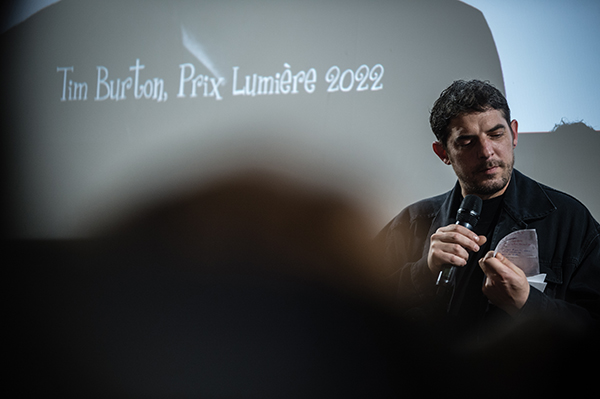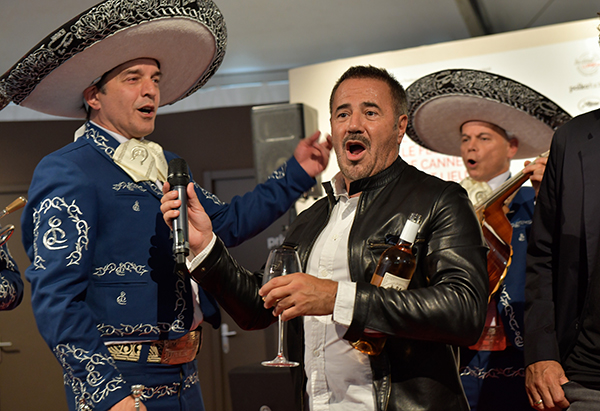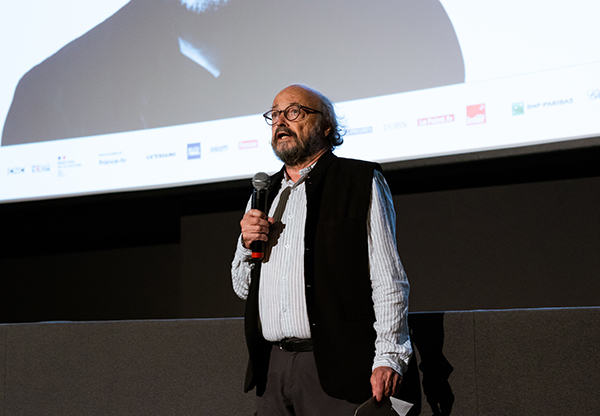Happening
at Lumière
PostED ON 17.10.2022
Damien Bonnard introducing Claude Chabrol's The Breach/The Breakup
"Chabrol was a filmmaker who mixed genres (crime, drama, comedy…) and created a rich cinema with fine adaptations of American auteurs. He is the only director, along with Hitchcock, who used an adjective to talk about his cinema: ‘a Hitchcockian film’, ‘a Chabrolian film’. My favourite Chabrol work is ‘Dirty Hands’."
 © Loïc Benoit
© Loïc Benoit
"Oh my my my, a good bottle of Rosé Garcia!"
A group of Mariachis revisited their classics to celebrate the launch of José Garcia's wine, baptised ‘Rosé Garcia’. The chorus featured a guest star, Alejandro Gonzáles Iñárritu, who belted out ‘Viva Mexico!’

© Jean-Luc Mège
Louis Lemkow Zetterling on ‘The Girls’ (1968) by Mai Zetterling::
“I really like this film by my mother. It is an explicitly political feature film. She often worked with the themes of gender, war and inequality, which are all very present. It is also a movie that considers the context of a very important year politically: 1968. My mother was interested in politics, but she didn't want to be labelled a feminist, a socialist or a leftist. Yet ‘The Girls’ is clearly feminist and progressive, no doubt about it! It is about Sweden in the 1960s, which was put on a pedestal because of its welfare-oriented society. The film was not well received at the time because Swedes were not used to their societal system being criticised. Mai wanted to point out that male domination still existed and that equality between men and women was insufficient. In France, however, the film was very well received. Simone de Beauvoir even wrote a glowing review about it in ‘Le Monde’. De Beauvoir then contacted my mother to direct a project based on ‘The Second Sex’, but in the end, it didn't work out. My mother also wanted to try the comedy genre, which is apparent in ‘The Girls’, which has a very ironic sense of humour. The film also evokes the war. Mai was not a political activist, but she was profoundly anti-war. She was also vehemently against nuclear weapons.”

© Léa Rener

